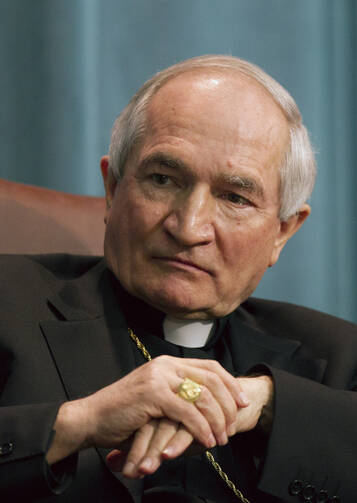In an address at the Human Rights Council in Geneva on Sept. 11, Archbishop Silvano Tomasi, the Holy See’s permanent observer at the United Nations, described the tragic forms of contemporary slavery, such as “massive kidnappings and sale of young girls under the false premises of religious teachings as is done, for example, by Boko Haram in Nigeria or by the so-called Islamic State group in northern Iraq.” Archbishop Tomasi pointed out that “some 250,000 children are forcibly conscripted and even used as ‘human shields’ in the front lines of armed conflicts.” He added, however, that “other, subtler forms of slavery” also deserve attention, “including the 5.7 million children who are victims of forced and bonded labor, domestic servitude, early, forced and servile marriage...and caste-based forms of slavery, which affect the lives of so many and are not confined to developing and poor countries.”
Ending Slavery In Our Time
Show Comments ()
1
Comments are automatically closed two weeks after an article's initial publication. See our comments policy for more.
William Atkinson
10 years 10 months ago
Slavery will never end or have a chance of ending until the church (and also the Jesuits) give women in the world equal rights with men, that all men and women, all races, all structures, all of mankind, all humanity are equal in all areas and in all things.
The latest from america
Frank Turnbull, S.J., a longtime editor at 'America' who died earlier this week, is remembered as a humble, quiet and yet forceful presence to those who knew him during his 85 years of life.
A Reflection for Saturday of the Fifteenth Week in Ordinary Time, by Zac Davis
Trauma-informed spirituality knows better than to promise that prayer will take away all the pain. But it can offer the hope that, even in the midst of pain, there can be moments of feeling whole.
Israeli Prime Minister Benjamin Netanyahu telephoned Pope Leo XIV, who urged Israel’s leader to revive negotiations and enact a ceasefire.








